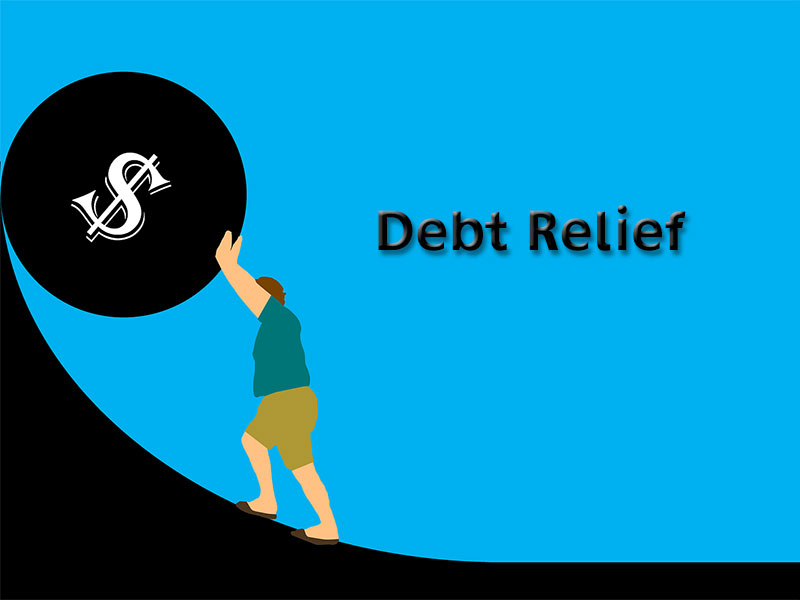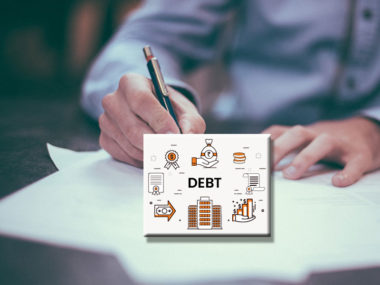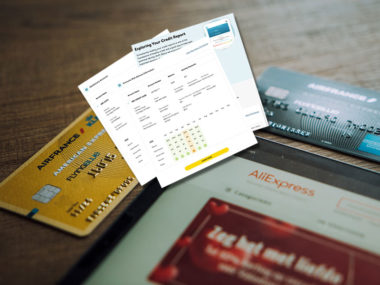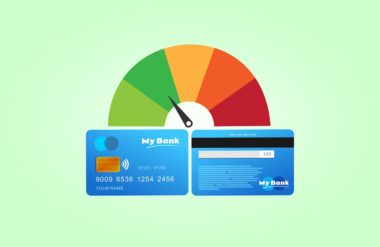
If you feel like you’re being crushed under the weight of your debt, you aren’t alone. Many Americans struggle with a large amount of debt, mostly from credit cards and loans. Companies like Freedom Debt Relief are interested in helping people get out from under their debt to breathe freely again. They stand with you against creditors to take control of your financial situation.
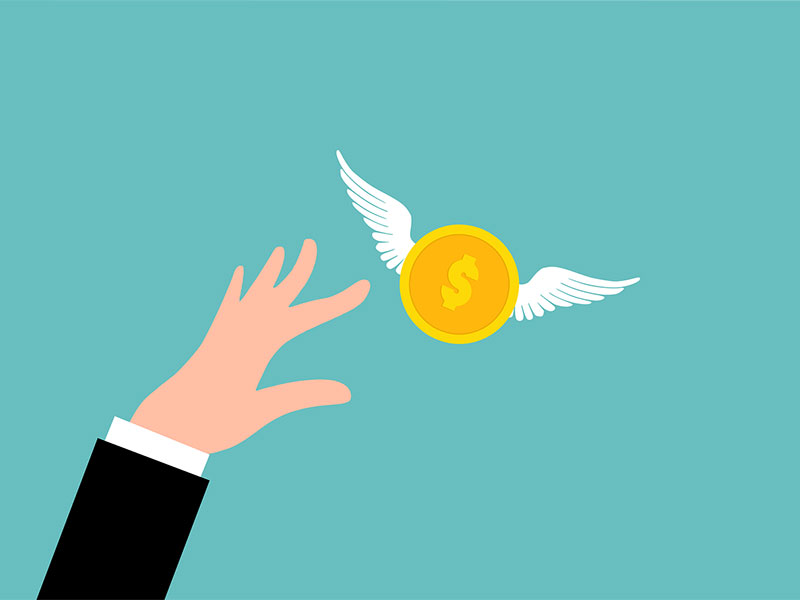
Table of Contents
What Is Your Credit Score?
Your credit score is a system creditors use to determine whether you are a safety risk for a loan, mortgage, or credit card. Your phone company, auto insurer, and others may also use your credit score to determine your rates and decide whether to sell you specific policies.
To calculate your score, lenders use the information found in your credit report. For example, some factors that may impact your score include:
- History of repayment
- Length of loans
- Types of loans
- Amount of debt owed
Some bureaus may calculate your score differently, though most lenders look at the FICO score for information about your credit history. Your overall score helps lenders decide whether to lend you money, your interest, and how much they are willing to offer you. Your overall score falls somewhere between 300 and 850.
How Important Is Your Credit History?
Freedom Debt Relief understands how your history plays a significant role, particularly when it comes to your finances. When you have a low credit score, you may find it more challenging to obtain help when you need it the most.
Purchasing a Home
If you choose to purchase a home, this may be one of the most significant financial decisions. You need to think it through and decide how much you can afford and what type of home you can afford. When you plan with real estate, you are less likely to have financial trouble.
Before buying a house, you need to watch your credit report. It does not matter if you don’t plan to buy a home in the next few years. If you ever want to buy a home, you should regularly check your scores to have a good idea of your credit score.
When you have a good credit history, lenders are more likely to give you a reasonable interest rate on your mortgage loan. The lenders look at your report to decide if you qualify for the loan.
Starting a Small Business
Freedom Debt Relief may help people become small business owners. All small businesses require funding to get started, but lenders will not want to help you with your business venture if you have a poor credit history. There are various loans that you may qualify for when starting your own business.
However, you need to prove that you aren’t a high-risk business owner. Companies want to know that you can pay your bills. Once your business is established, make sure you have your business’s legal structure and accounts properly established. In addition to your credit score, you’ll have to prove that your business can make enough money to make a loan worth it.
Think of your financial institution as your investor. You have to sell your business’s advantages to expect any payment.
Once you have a business, you may consider business credit. Business credit can help you apply for financing under your business’s name. Establishing business credit allows you to have a credit history outside of your personal history. When you have good credit, you are more likely to be able to apply for financing for equipment, supplies, and other emergency costs.
When your credit score is high, your business will qualify for better financing options. Loans and credit cards become more affordable.
Financing a Car
Most people do not buy a brand-new car outright. Generally, most do not have the money to afford a new car out of pocket. If you want a vehicle, odds are you would finance it or receive a car loan to help pay for the car. Every month, you would pay specific payments until your loan finishes and you own the car with no debt.
You need a high credit score if you want to buy a car. Lenders may not want to work with someone who has a recent repossession or bankruptcy on their record.
If you have a poor credit score or a lot of debt, you may be able to finance a car at a high price. Your interest rate may be higher, so you pay more for the vehicle in the long run. When it comes to your credit score, companies look at the amounts you owe compared to the amount you have. If you have too high of a credit utilization ratio, you may lose out on your dream car.
How Do Debt and Freedom Debt Relief Affect Your Life?
Most people who turn to Freedom Debt Relief already know the impact of debt on their lives. What may begin as mild financial stress can grow exponentially. Given the variety in people’s lifestyles and finances, different people may be affected differently by the amount of debt they carry.
The idea behind debt relief is to help people from suffering from the negative impact of having debt that they cannot pay off in a reasonable time frame.
The Mental Impact
Overwhelming debt can be detrimental to your emotional health. When people do not feel financially secure, they may feel unstable in every part of their life. The stress becomes chronic and can have an effect on your relationships and your ability to function. You may experience severe anxiety and depression.
With these mental health issues, it’s normal to have headaches, insomnia, and other mental health problems associated with financial instability.
You may not act like yourself anymore. You may become a procrastinator, eat too little or too much and act nervously more often. Unfortunately, some people even become poor spenders. They become anxious and upset over the debt that they spend money on compulsively.
The Professional Impact
Debt may affect your professional life in a couple of different ways. First, if you plan to start your own business or if you already work for yourself, credit card debt can make you feel like you can never get funding for the things you need for your business. For example, you may need more work supplies, equipment, or software to keep your company afloat.
Additionally, you may find yourself working multiple jobs to keep up with credit card bills. You already have a lot of financial obligations. When you work multiple jobs, you don’t have time for family or relaxation. It can take a toll on your personal life and your health. You should not have to suffer working day and night because of your credit card debt.
The Personal Impact
If you are in a relationship, your financial issues can start to impact your relationship. You may find yourself arguing more regularly with your partner about money and how the two of you spend your money.
When you have a lot of debt, you are bound to feel stressed all the time. It can be challenging to uphold positive relationships when you feel burdened. Friends, family, and loved ones may witness behavioral changes. You may find yourself short on patience.
The Medical Impact
You may think that debt only affects your mind. However, chronic stress can impact your physical health. First, you may begin to experience regular headaches or be unable to sleep at night. Headaches and sleeplessness can both affect your physical health. Additionally, chronic anxiety and depression can impact your cardiovascular health. It puts stress on the heart, but many people who have anxiety and depression do not prioritize health.
You may not eat healthily or exercise because of how you feel about your financial situation. Financial trouble can seep into every aspect of your daily life, but relief options like Freedom Debt Relief can help remove the burden.
What Can Help You Alleviate Debt?
You do not have to live with your debt. If you feel like you can no longer make the payments on your credit cards and your credit score continues to plummet, help is available. There are various debt relief programs available to those who need help with their finances.
Consolidation Loans
Some people choose to alleviate debt through consolidation. You lower your cost of credit by using a second mortgage, home equity line of credit, or other loan or credit card to consolidate all of your credit cards into one balance. The consolidation makes it cheaper because you do not have to pay as high an interest rate as you previously did.
Keep in mind that some loans ask you to put up collateral. For instance, someone may put up their house and lose it because they defaulted on their payments.
Debt Relief
There are various ways to achieve debt relief. At Freedom Debt Relief, they help you enter into a debt settlement program. They negotiate with your creditors, so you only have to pay a lump sum rather than paying the entirety of what you owe. You may have to pay a specific amount every month or set aside a particular amount.
As you put money into a savings account, they create a custom plan for your debt relief. When a debt settlement company negotiates or settles the debt, they contact you to ensure that you approve of the move. After a while, you pay the entire settlement, and you no longer have to worry about your creditors hounding you for money.
Bankruptcy
Oftentimes, people use bankruptcy as a last resort. When you go through bankruptcy, you may be able to receive a discharge of debt. The court orders that you do not have to pay certain debts. There are two different types of bankruptcy: Chapter 13 and Chapter 7.
With Chapter 13 bankruptcy, you enter a payment agreement where you may pay less than the total owed or have a payment plan that works for you and the creditors. In Chapter 7 bankruptcy, however, you liquidate your unexempt assets to pay off some of your debt and discharge the rest.
One of the most significant disadvantages of bankruptcy is that it affects your credit score and will remain on your credit report for 10 years.
How Can You Improve Your Credit Score?
If Freedom Debt Relief helps you, you may want to rebuild your score after. The first rule to remember when rebuilding is to never fall into the same old habits again. Remember what got you into debt the first time and think about how you can change it. You may choose to go through credit counseling or start a budget to help you manage your finances better.
Building Credit From the Ground
If you are new to establishing credit, you need to work from the ground up. You can do this by borrowing money or establishing credit cards. When you first start the process, do not go overboard. It may be tempting to apply to every card you’re offered, but try to keep your limits down and only apply for cards you can afford. When you use your card, make sure you have the money in the bank to back it up.
Rebuilding Credit After Debt Resolution
If your credit score took a hit before or after debt resolution, you may want to start with a secured credit card. When you use a secured card, you put down a deposit and borrow from the money you put on the card. If you cannot make payments or default on the card, the lender takes from your deposit. Some companies allow you to change your secured card to an unsecured card over time.
Allow Freedom Debt Relief Help You
When you are in debt, you may feel the weight of your credit cards in your personal and professional life – not to mention that the mental and physical health effects may leave you with chronic stress. At Fiscal Tiger, we want to help you learn to manage your finances without fear of creditors coming after you for money. Check us out for more information on debt relief solutions like Freedom Debt Relief.
